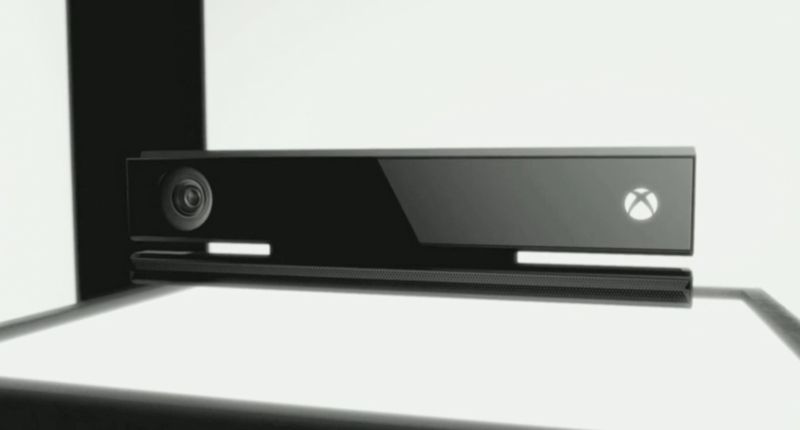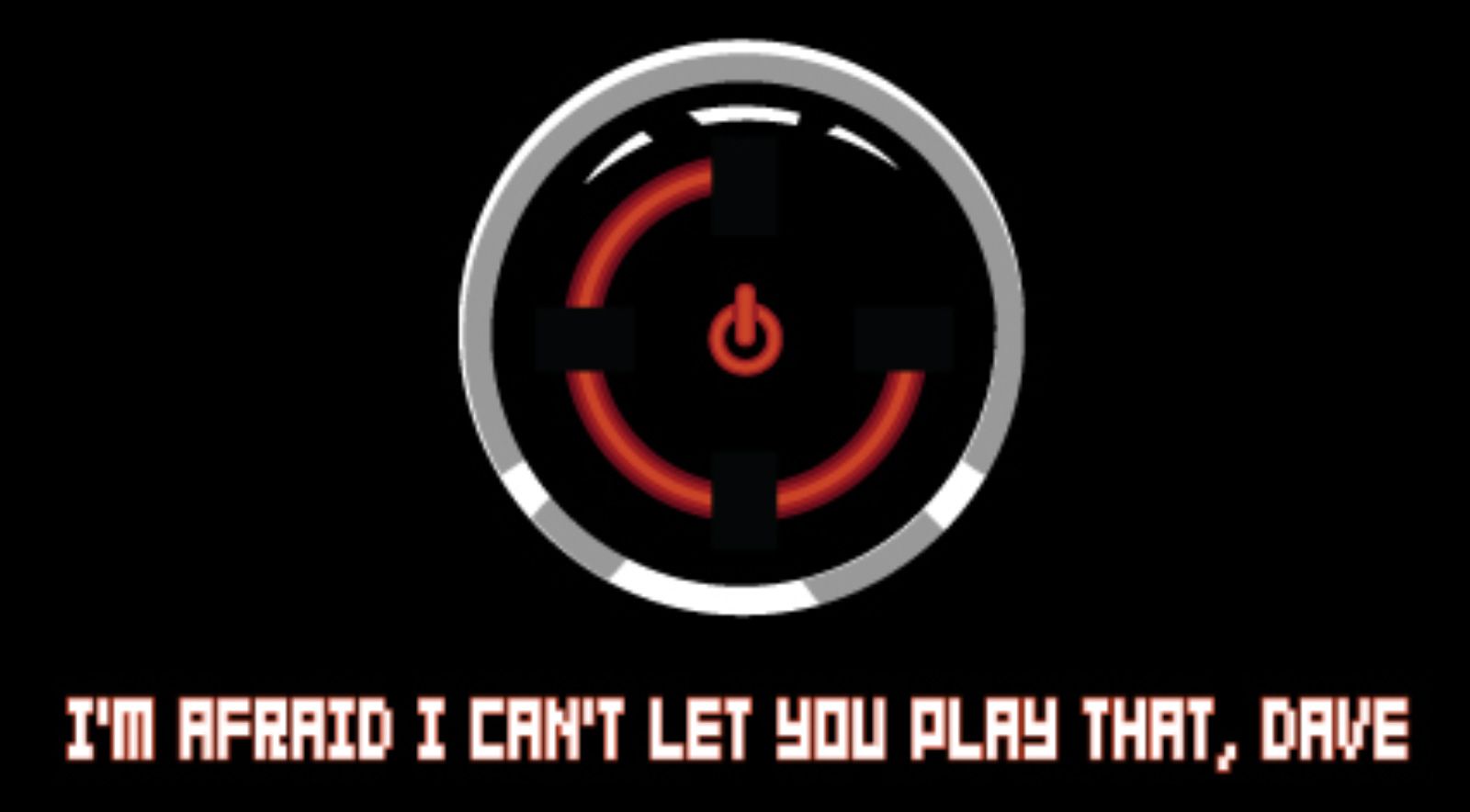Dear Microsoft,
The Xbox One reveal was a disappointment for many, me included. I'm actually quite surprised that those that make these decisions in Redmond thought the presentation would please their core audience, and this makes me actually wonder if the negativity was considered an acceptable loss.
I will not talk about used games today, nor I will go on a tirade on always online requirements. We haven't been given enough solid information on those topics to do much else than speculating, and there isn't much to say for now besides encouraging the powers that be at Microsoft to put a nice gag on their executives (that seem to sometimes be overly eager to show their "swag" in front of the press, causing them to speak too much) until firm policy decisions have been taken.
While this may seem to go against my own interest as a reporter, a "no comment" is still a viable option, and while it may not sound as cool as a friendly flow of information, it's much better than sharing imprecise or partial tidbits followed by accusations of inaccurate reporting towards those in the press that did nothing more than relay what they were told.
With that out of the way, let's move to the real reason why I'm disappointed: the presentation shared a foundational vision, and that vision didn't include core gamers as the focus target of the Xbox One. To be more precise, gamers in general, whether they are casual or core, were seen as a mere accessory to that vision.
Xbox one was presented as a TV cable box that incidentally also happens to play games.
http://www.youtube.com/embed/KbWgUO-Rqcw
The funny part is that the Xbox One won't even be a cable box, as it still requires to be connected to an actual cable box to function, so what we have seen during its unveiling is basically a voice/gesture interface shoehorned in between our cable box and our TV, that does nothing else than pander to the lazybones that don't even want to extend an arm to grab the remote.
Oh, and it also does picture- in-picture, something that TVs do all by themselves since 1983. As a matter of fact my smart TV (and even the not-so-smart ones) does TV perfectly well by itself without the help of Xbox One, and will most probably continue to do so even after this holiday season.
What about the amazing ability to switch between games and TV on the fly? It seemed quite fast indeed. Too bad that the AV button on my remote has done it faster since the times of my first NES.
Let's not forget that the Xbox One also does Skype, something that any crappy grandma's laptop or even any smartphone does without breaking a sweat. I'm also quite sure that when it was shown most self-respecting gamers thought "Why would I want to sacrifice precious screen space to see some other dude as I play games?"
 I guess the Skype feature will please those that use sites like this...
I guess the Skype feature will please those that use sites like this...
We didn't sell a kidney to purchase that lovely 42 inches OLED TV in order to have a webcam (because this is what it is) steal part of the screen. We bought that TV to see our games bigger, not smaller.
Ultimately a lot of the concepts behind Xbox One's vision seem to scream "Hey! We're going to give you a lot of unnecessary stuff to distract you while you play games!" The problem is that when we're playing a good game we're already having fun. We're immersed and engaged, and we don't need something to distract us and to break that immersion and engagement. Our moms and girlfriends (and boyfriends) learned that when we're playing a good game we don't want to be distracted.
This, dear Microsoft, is not rocket science.
What about Kinect? Many gamers simply don't want to have to dance in front of the screen, or to reach around to grab an invisible hatch. Many simply like their buttons and their analog sticks, because contrary to (not very) popular belief grabbing on something that simply isn't there isn't really immersive.
As a matter of fact many gamers simply cannot use Kinect. Not everyone games in a spacious living room, and while the new wide-angle lenses will improve the situation, it's very unlikely that Kinect won't require a sizable amount of breathing room to function well. Hell, by reaching to that invisible hatch I'd simply punch straight into my carefully lined-up games collection.
By making Kinect mandatory (so much that the console won't even function without it), Microsoft passed the message that those that don't want or can't use it will be marginalized, and won't be able to enjoy Xbox One games to the fullest.
Let's not even get into the fact that we're going to have to pay for a hi-tech webcam that many of us simply don't want, and consoles aren't exactly cheap already.
Let's be honest here: Microsoft failed to revolution gaming with Kinect, and now they're trying to revolution TV. And it's still most probably not going to happen.
Ultimately the big problem with the Xbox One reveal is that it described a vision in which the Xbox One is the center of the living room, but in that living room there isn't a gamer, there's someone that wants to do a whole lot of things, and maybe get some gaming done as a collateral.
Microsoft seems to have lost sight of the fact that the center of the living room shouldn't be a console, or the TV, or the couch, or whatever piece of low or hi-tech furniture. The center of the living room should be the gamer himself.
Microsoft's Director of Global Marketing Craig Davidson said that Microsoft is going to "Kill Sony" at E3. And that outing incarnates the problem pretty well. For a whole generation Microsoft has been focusing so much on one-upping the Japanese rival that they ended up forgetting the fact that their customers don't really care about "killing" this or that brand. They care about playing good games.
The whole history of the Xbox 360 has been a sequence of pot shots at Sony that often led to serious drawbacks. Since the very beginning the console was released too early, with fatal manufacturing flaws that led to the dreaded Red Ring of Death in order to beat Sony to the market.
Then Microsoft grabbed every single JRPG it could put its paws on in order to try and "beat Sony in its own turf". The consequence? A lot of those games were released in a hurry retaining serious technical flaws (like The Last Remnant, Star Ocean: The Last Hope and Magna Carta 2), while the others were pretty much ignored because they were released on a console that wasn't otherwise targeted to their usual audience and without the proper marketing support.
Lovely games like Lost Odyssey went by almost completely ignored, weakening a whole genre and the Japanese gaming industry by pushing it towards a false start at the beginning of the generation, because Microsoft had to show that they could defeat Sony in its home country.
Yet all they managed to achieve is that some of those much touted exclusive games ended up being re-released in versions openly publicized as superior on the PS3, and last week the Xbox 360 sold a whole 382 units in the archipelago of the rising sun. Some victory...
A lot of the big headlines on the 360 during the current generation were about exclusive franchises taken away from Sony (in some sort of childish "Me too!" approach) or about timed DLC exclusives with very debatable commercial effects besides screwing up those that chose to purchase a console made by the hated competition.
The new vision for the Xbox One seems to stem from that same attitude elevated to the extreme consequences. My impression is that Microsoft is desperately trying to demonstrate that they can achieve something that Sony can't (or doesn't want to) do, pushing the focus into an entirely different direction. Remember "Sega does what Nintendon't?" It worked well for Sega, right?
Ultimately the problem lies in the vision itself. Nintendo is already suffering the consequences of pushing their core audience aside, and Microsoft is making the same basic mistake blinded by the fact that the Wii sold very well. The difference is that the Wii was still purely a gaming console. As a matter of fact it was an extremely simple gaming console that did only one thing, but did it well.
On the other hand, Microsoft is trying to sell an overly complex and redundant machine that does everything, despite the fact that most of that "everything" is already done perfectly well by devices that have much stronger roots in our living rooms and without which the Xbox One can't work anyway. Without the TV we already have the Xbox One is nothing else than a big and black paperweight.
The dire consequence of that vision is that games have been presented as a secondary focus for the console. Don't get me wrong: I'm extremely confident that Microsoft will present a very solid line-up of games at E3. They're developing fifteen exclusive games to be released in the first year of the console's lifetime, but that won't cancel the fact that at the most crucial moment of the console's public reveal they decided to slap "TV, TV, TV, TV, TV, TV, TV" in our faces.
Whatever Microsoft will show at E3 will definitely sweeten the pill, but that pill has been already been given and swallowed, causing an intense stomachache. It's doubtless that the technology behind the TV integration and all those fairly useless accessories that have nothing to do with gaming costed a sizable slice of the Xbox One's research & development budget. If that money was spent on games, we would get twenty exclusives instead of fifteen, or fifteen games that would be bigger and better.
Gamers that will decide to purchase an Xbox One will have to pay for that technology whether they'll use it or not, and there's little doubt on the fact that an Xbox One that focused only on games, stripped of all the TV nonsense, would weigh sensibly less on our pockets.
Microsoft will most probably woo us with special effects at E3, show us spectacular exclusives and tell us that they "killed Sony" (like most of us cared about that), but for many, me included, that probably won't cancel the fact that everything they'll show would be even better if they just focused on games and on satisfying the 77 millions of gamers that brought them where they are now.
Unfortunately, looks like we aren't enough anymore for the top brasses sitting in Redmond, and that's something hard to forget or overlook.
Is there a way to solve this problem? Honestly I'm not sure it's even possible, especially since Microsoft seems to be more intent in engaging in damage control and silencing opposition than in making amends. At the moment of this writing the official Xbox One Reveal Highlight video on Youtube has 2,523 likes overwhelmed by a staggering 13,490 dislikes. The comments weren't for the faint of heart, but instead of holding the feedback dear and adjusting to it, Microsoft decided to remove comments altogether.
In every industry taking in consideration the feedback of one's core audience is critical. A possible solution would be offering two separate models of the Xbox One. The first with all the bells and whistles, the TV interface, Kinect, an integrated coffee machine and whatever Microsoft wants to shoehorn into it to seek their fabled new audience, and the second in the form of an agile but powerful core machine, without Kinect, without TV integration, and without all those useless (for a gamer) accessories, but cheaper and capable to play some positively amazing games.
http://www.youtube.com/embed/L0HgsIf-ps4
A more radical (and possibly even more effective) solution that comes to mind is Don Mattrick walking on that stage at E3 and telling us: "Ok, we're sorry, we screwed up. We lost sight of our mission and the vision we displayed during the Xbox One reveal was misguided by excessive ambition. We realize that gamers are the ones that brought the Xbox brand where it is, and we're going to refocus our vision and budgets on what they want and need. Here's how we're going to make it up to you," followed by a constant stream of amazing games.
The applause would be thunderous, and this time it wouldn't come from the back of the room.
I know that this is an almost impossible scenario, and that most probably it won't happen. In my opinion, though, it would be the perfect way to turn hostility and disappointment into a warm feeling of reconciliation. Being able to admit one's mistakes and being willing to apologize and make up for them are signs of strength and solid business ethics in a company worthy of our trust and money.
Unfortunately, while that's a very solid tradition in Japan, not many western corporations share that ability, but Microsoft still has the chance to demonstrate that they do. All it takes is the courage to open that door and walk on that stage. It may be unlikely and maybe even overly romantic, but If even one of the top executives in Redmond shares this sentiment and is trying to persuade his colleagues to follow that path, I'm cheering for him with my whole heart.
Sincerely,
Giuseppe





